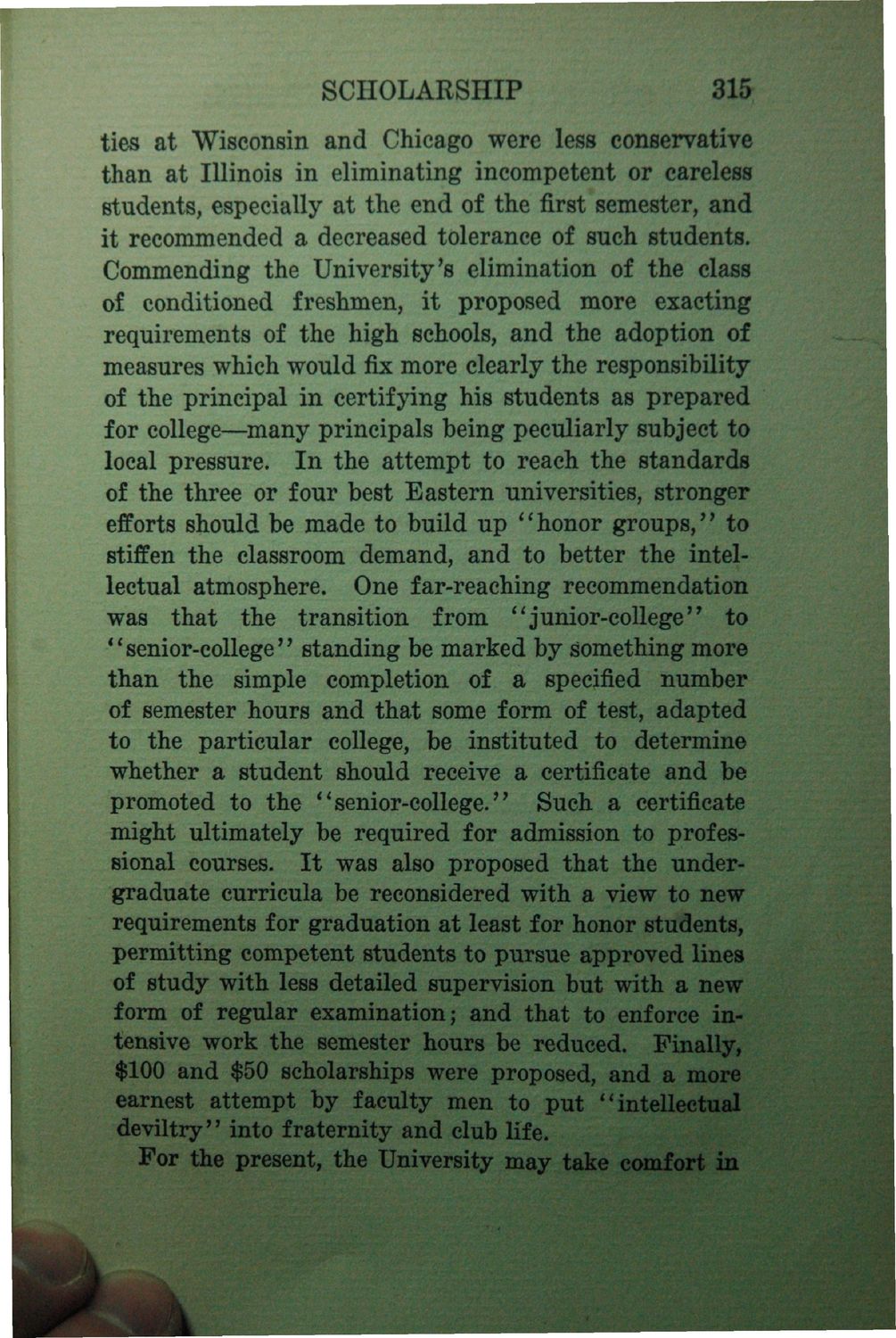| |
| |
Caption: Book - History of the University (Nevins)
This is a reduced-resolution page image for fast online browsing.

EXTRACTED TEXT FROM PAGE:
SCHOLARSHIP 315 ties at Wisconsin and Chicago were less conservative than at Illinois in eliminating incompetent or careless students, especially at the end of the first semester, and it recommended a decreased tolerance of such students. Commending the University's elimination of the class of conditioned freshmen, it proposed more exacting requirements of the high schools, and the adoption of measures which would fix more clearly the responsibility of the principal in certifying his students as prepared for college—many principals being peculiarly subject to local pressure. In the attempt to reach the standards of the three or four best Eastern universities, stronger efforts should be made to build up "honor groups," to stiffen the classroom demand, and to better the intellectual atmosphere. One far-reaching recommendation was that the transition from "junior-college" to •"senior-college'I standing be marked by something more than the simple completion of a specified number of semester hours and that some form of test, adapted to the particular college, be instituted to determine whether a student should receive a certificate and be promoted to the "senior-college." Such a certificate might ultimately be required for admission to professional courses. It was also proposed that the undergraduate curricula be reconsidered with a view to new requirements for graduation at least for honor students, permitting competent students to pursue approved lines of study with less detailed supervision but with a new form of regular examination; and that to enforce intensive work the semester hours be reduced. Finally, $100 and $50 scholarships were proposed, and a more earnest attempt by faculty men to put "intellectual deviltry" into fraternity and club life. For the present, the University may take comfort in 4
| |